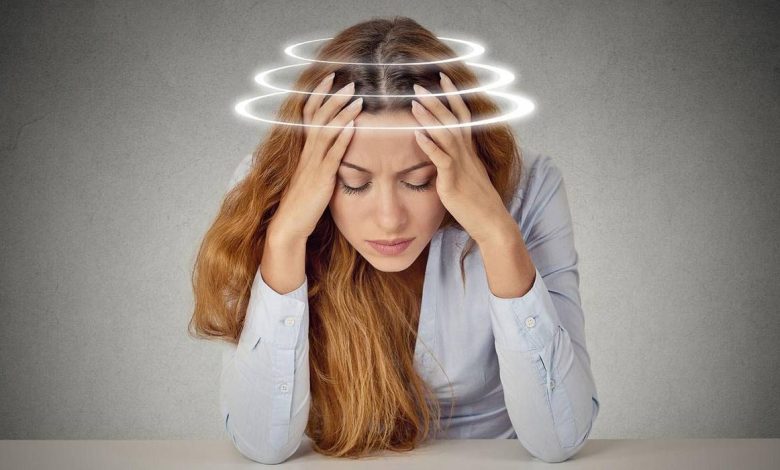Fainting, short-term loss of consciousness: What's it, causes, symptoms, diagnostics, treatment, prevention

Fainting; Passed out; Lightheadedness – fainting; Syncope; Vasovagal episode
What is fainting?
Fainting is a sudden reflex loss of consciousness due to a drop in blood pressure., which leads to a decrease in cerebral blood flow and a reduced supply of oxygen to the brain. It is also called syncope, what comes from the latin word “syncope”, meaning “fainting”. The fainting spell is usually temporary and lasts only a few seconds or minutes.; however, in some cases, the person may be unconscious for a longer period of time. Fainting is not usually life-threatening, but may be a sign of a more serious underlying health condition.
Causes of fainting
The main cause of fainting is a sudden drop in blood pressure., usually due to a rush of adrenaline, which causes a sudden relaxation of the body's blood vessels. This sudden drop in blood pressure leads to a decrease in blood and oxygen flow to the brain., causing the person to lose consciousness.
Some of the most common causes of fainting include emotional stress., fear, pain, prolonged standing, standing too fast, physical stress, dehydration, overheating, alcohol and drug use, as well as some medications.
Serious medical disorder, like a heart attack, drug reaction or seizure, can also lead to fainting.
Syncope symptoms
The most obvious symptom of fainting is a sudden loss of consciousness.. Before losing consciousness, a person may experience nausea, dizziness, Sweating, blurred vision, labored breathing, ringing in the ears and feeling very tired. The person may also experience a sensation of warmth, blednosti, confusion and experiencing a rapid or irregular heartbeat just before fainting.
When to see a doctor
If you are experiencing fainting, you should consult a doctor or seek medical attention, if you have experienced a sudden loss of consciousness, and it was not related to the previously discussed reasons. It is also important to see a doctor, if you have had episodes of fainting in the past, if the episodes become more frequent or any other accompanying symptoms appear (eg, chest pain, abdominal pain, gibberish).
Questions, that your doctor may ask
When you see a doctor about fainting, he can ask you a lot of questions, eg:
- When did the episode take place?
- How long was the episode?
- Did you have any warning symptoms (eg, dizziness, nausea, Sweating)?
- Have you had other episodes of fainting in the past?
- Have you taken any medications or supplements?
- Are you experiencing any pain or discomfort?
Diagnosis of fainting
To diagnose fainting, doctor, probably, appoint a medical examination, blood test and, perhaps, electrocardiogram (ECG). During the physical examination, the doctor will check your heart rate., blood pressure and check for signs of dehydration.
Tests, which can be ordered, include:
- Blood tests for anemia or a chemical imbalance in the body
- Heart rate monitoring
- echocardiogram
- Electrocardiogram (ECG)
- Electroencephalogram (EEG)
- Holter
- chest X-ray
Treatment depends on the cause of fainting..
Syncope treatment
Treatment for fainting depends on the underlying cause.. For Example, if it is established, what causes low blood pressure, your doctor may recommend these medications, as beta-blockers or ACE inhibitors, that help regulate blood pressure.
If you set, what causes heart disease, your doctor may recommend lifestyle changes, eg, quit smoking and exercise more.
Other treatments may include surgery or a pacemaker.
Home treatment for fainting
If you have recently fainted, there are some things, which you can make at home, to prevent further fainting. It is important to stay hydrated and avoid standing or sitting in one place for too long. You should also avoid getting up quickly, as this can lead to a sharp drop in blood pressure. Besides, you should avoid alcohol and drugs, because they can lower blood pressure. You can also wear compression stockings., to help improve blood flow and reduce the risk of fainting.
Prevention of fainting
There are several steps, you can take, to prevent fainting. At first, you should monitor your blood pressure regularly and take action, to keep it normal. You must also eat a healthy diet., exercise regularly and get enough rest. Besides, if you are experiencing an episode of fainting, it is important to see a doctor, to determine the underlying cause.
Fainting can be a frightening experience, but usually it is not life threatening. If you have recently experienced fainting, it is important to contact your doctor and discuss possible underlying causes and treatments. Taking steps to maintain your health and seeking appropriate medical care and treatment, you can help reduce your risk of fainting in the future.
Used sources and literature
Calkins H, Zipes DP. Hypotension and syncope. In: Zipes DP, Libby P, Bonow RO, Mann DL, Tomaselli GF, Braunwald E, eds. Braunwald’s Heart Disease: A Textbook of Cardiovascular Medicine. 11th ed. Philadelphia, PA: Elsevier; 2019:chap 43.
DeLorenzo RA. Syncope. In: Walls RM, Hockberger RS, Gausche-Hill M, eds. Rosen’s Emergency Medicine: Concepts and Clinical Practice. 9th ed. Philadelphia, PA: Elsevier; 2018:chap 12.
Shop D, D. Cassimatis. Episodic impairment of consciousness. In: Jankovic J, Mazziotta JC, Pomeroy SL, Newman NJ, eds. Bradley and Daroff’s Neurology in Clinical Practice. 8th ed. Philadelphia, PA: Elsevier; 2022:chap 2.
